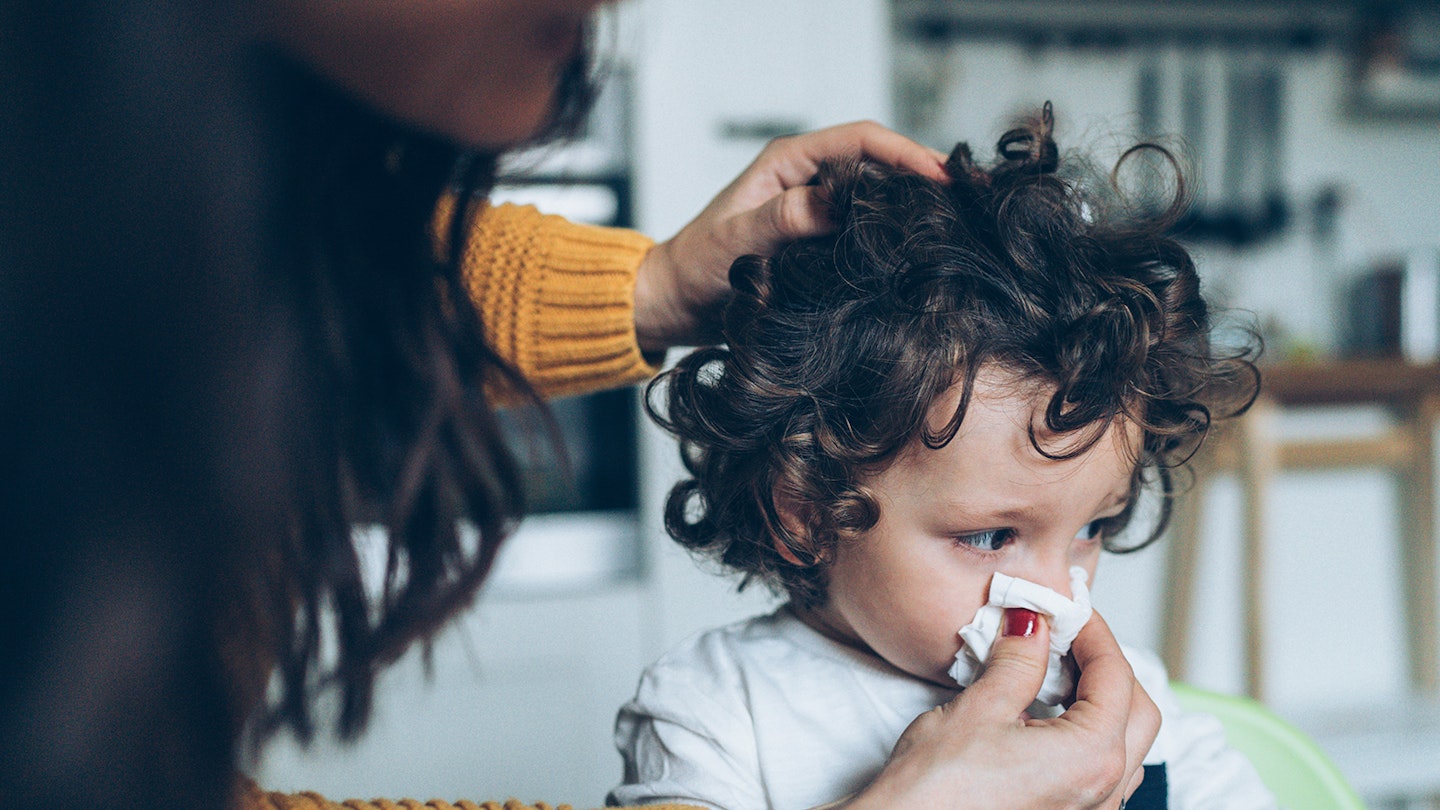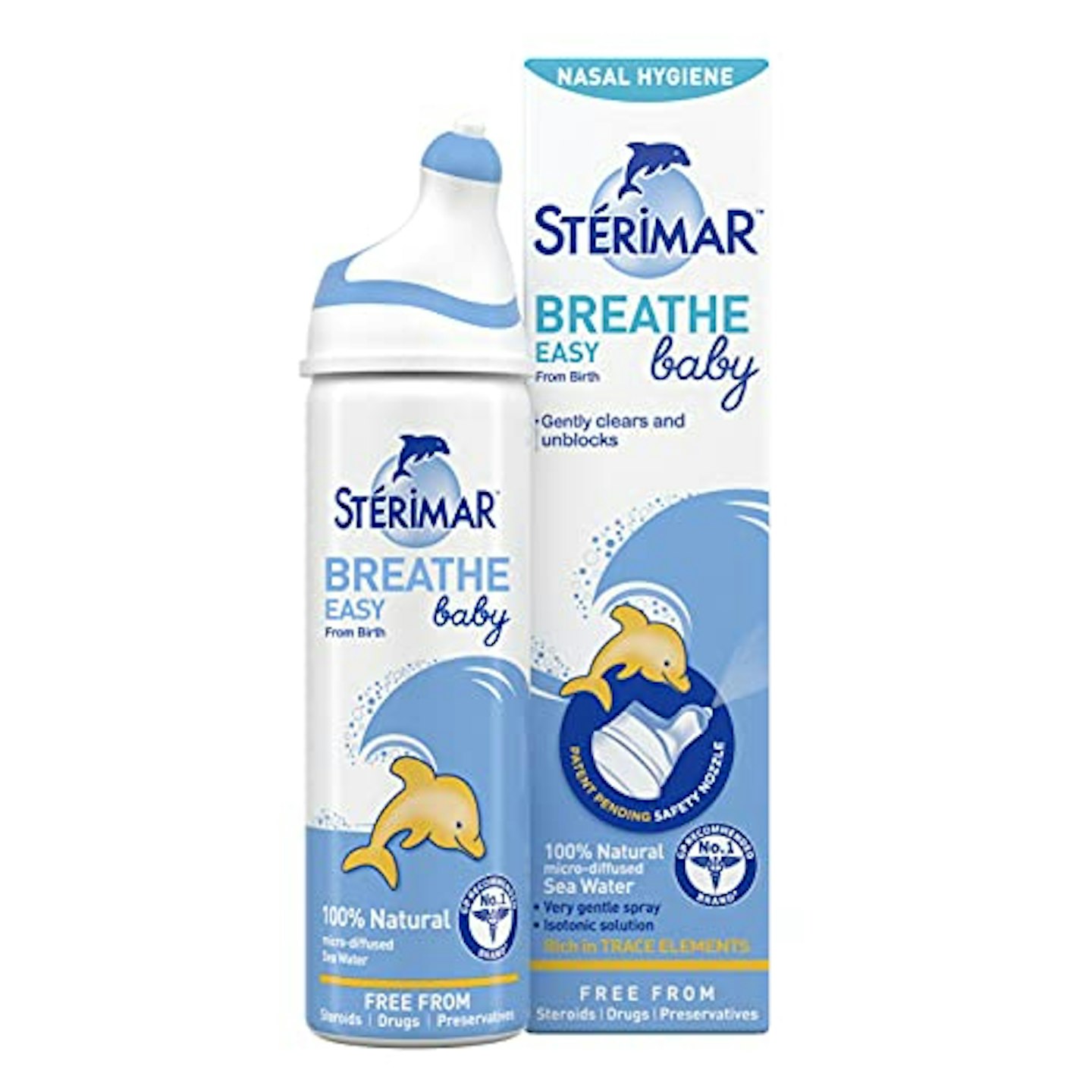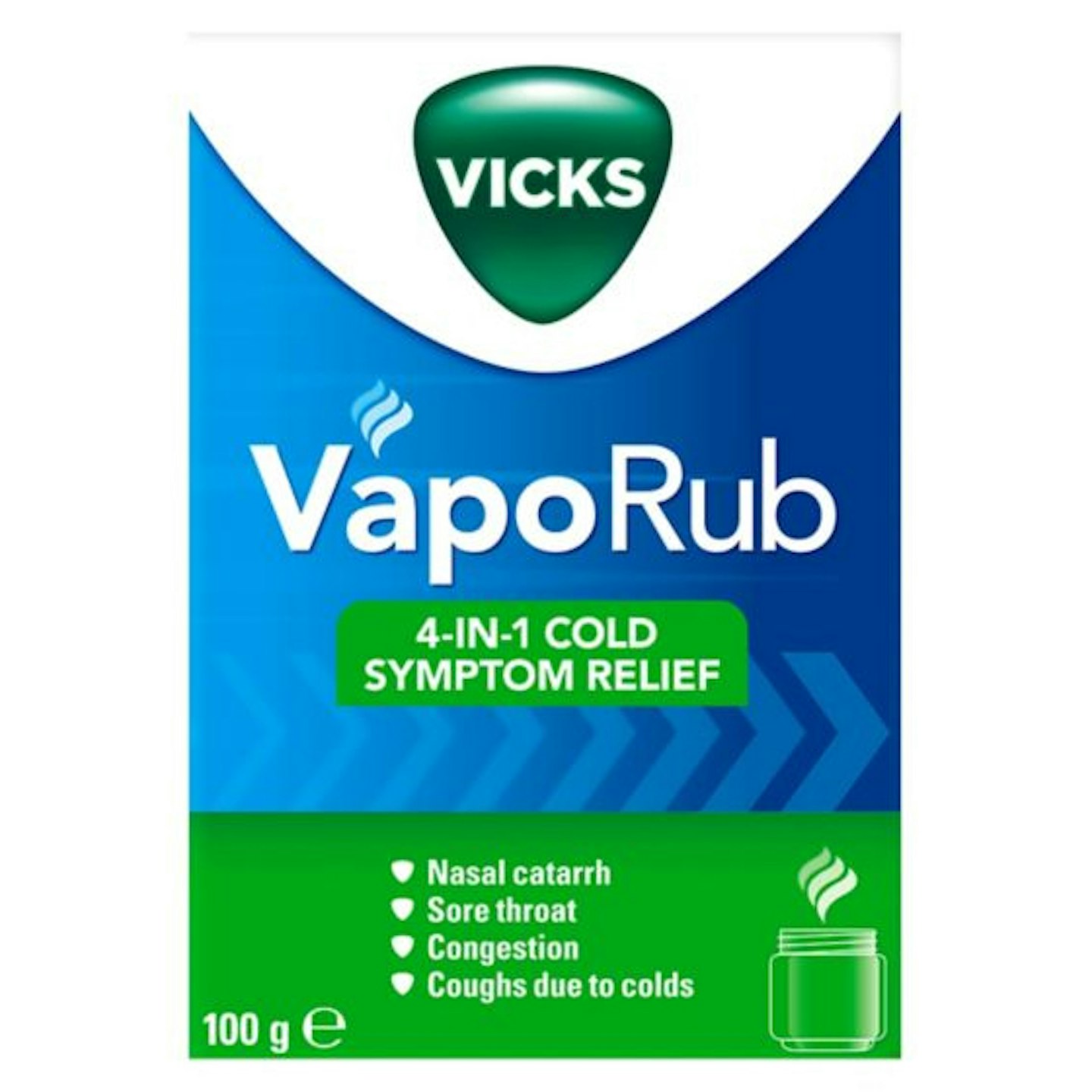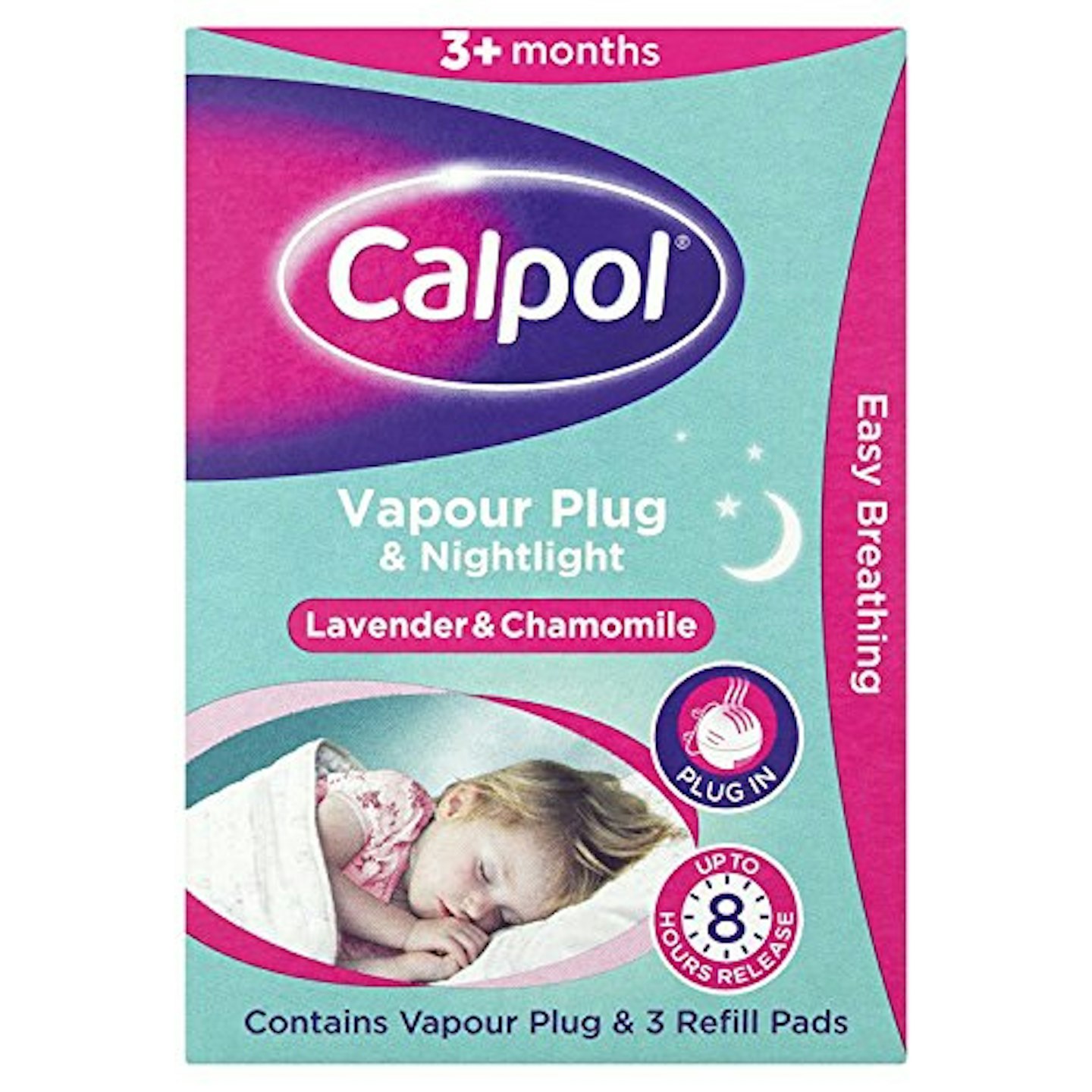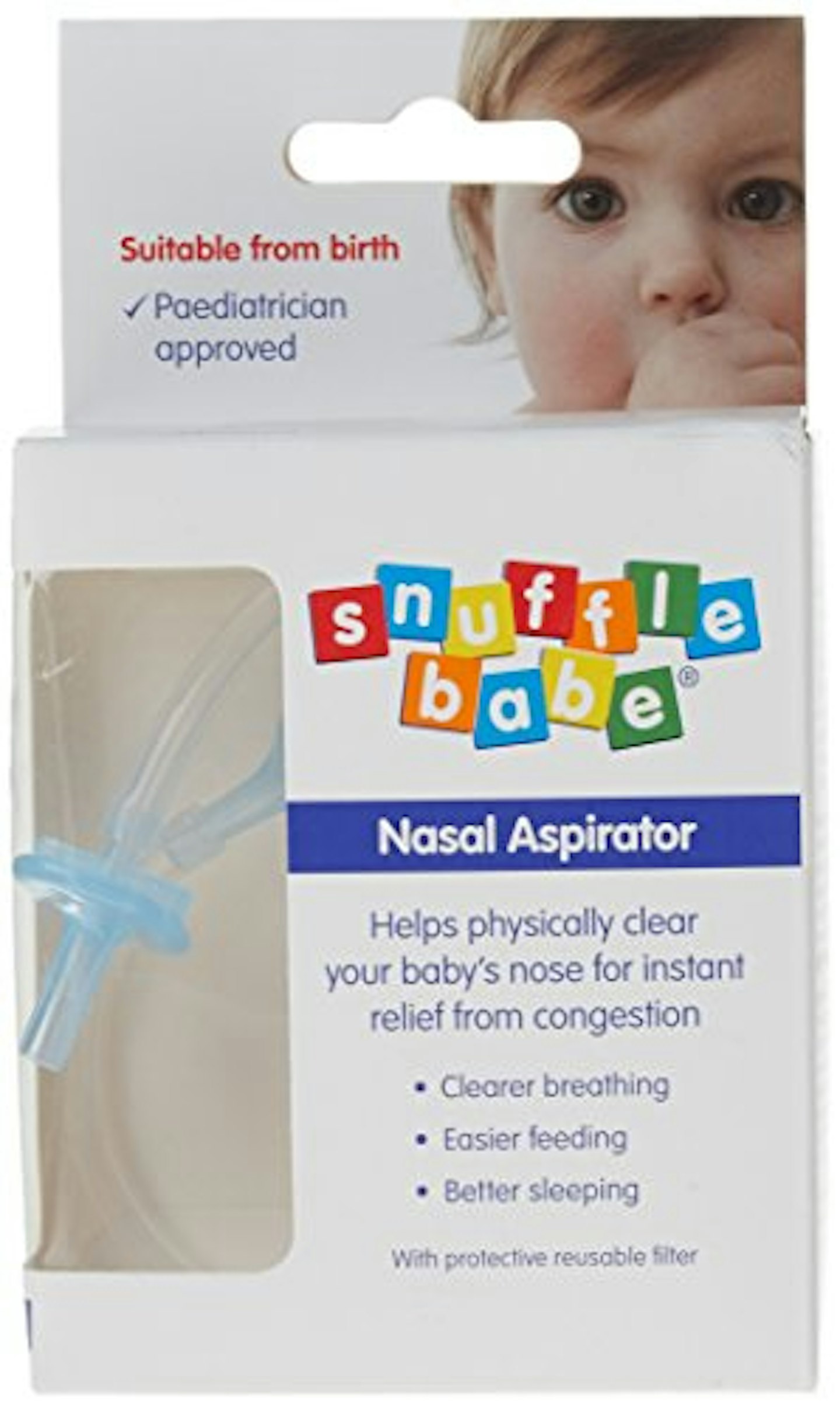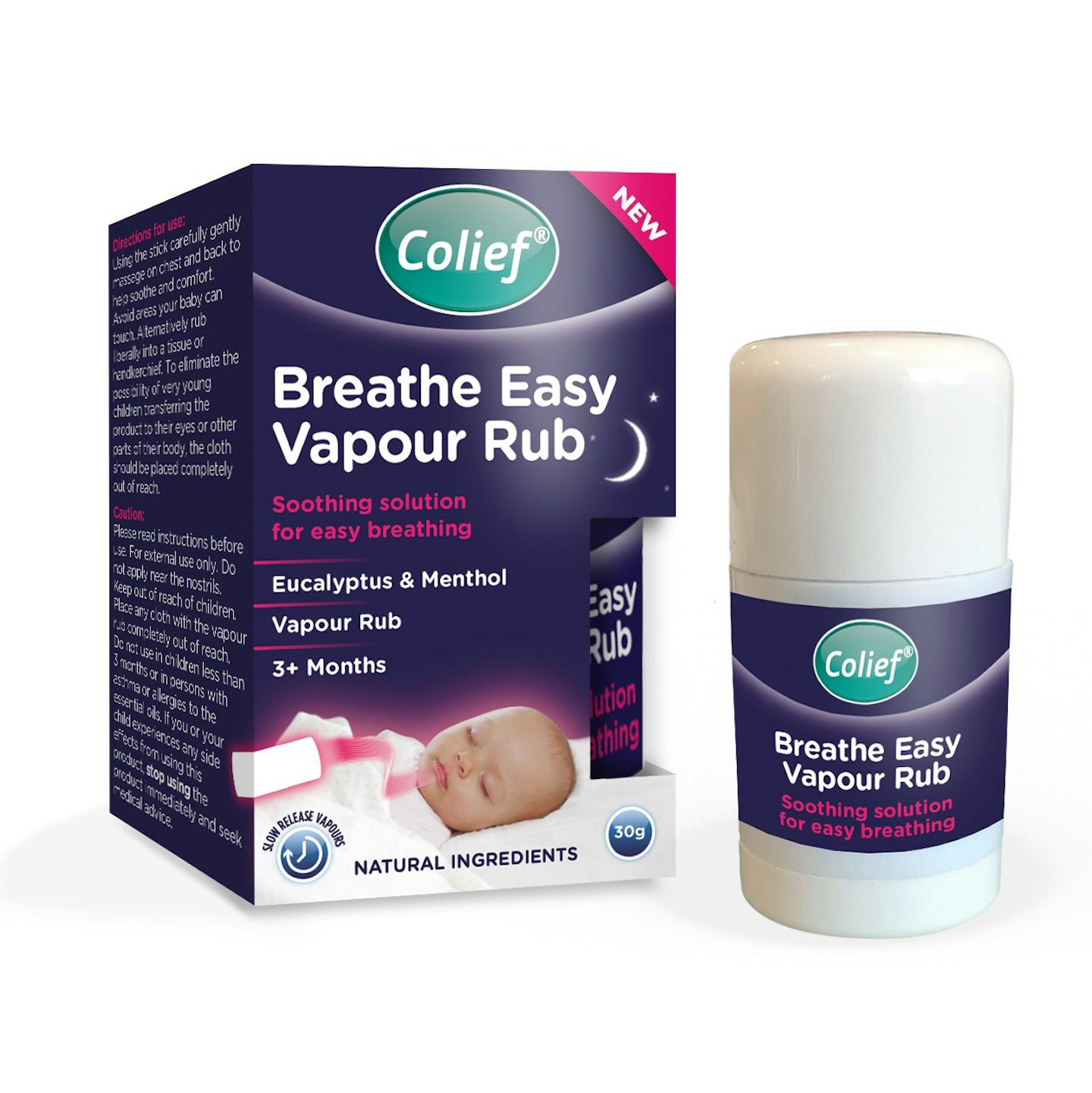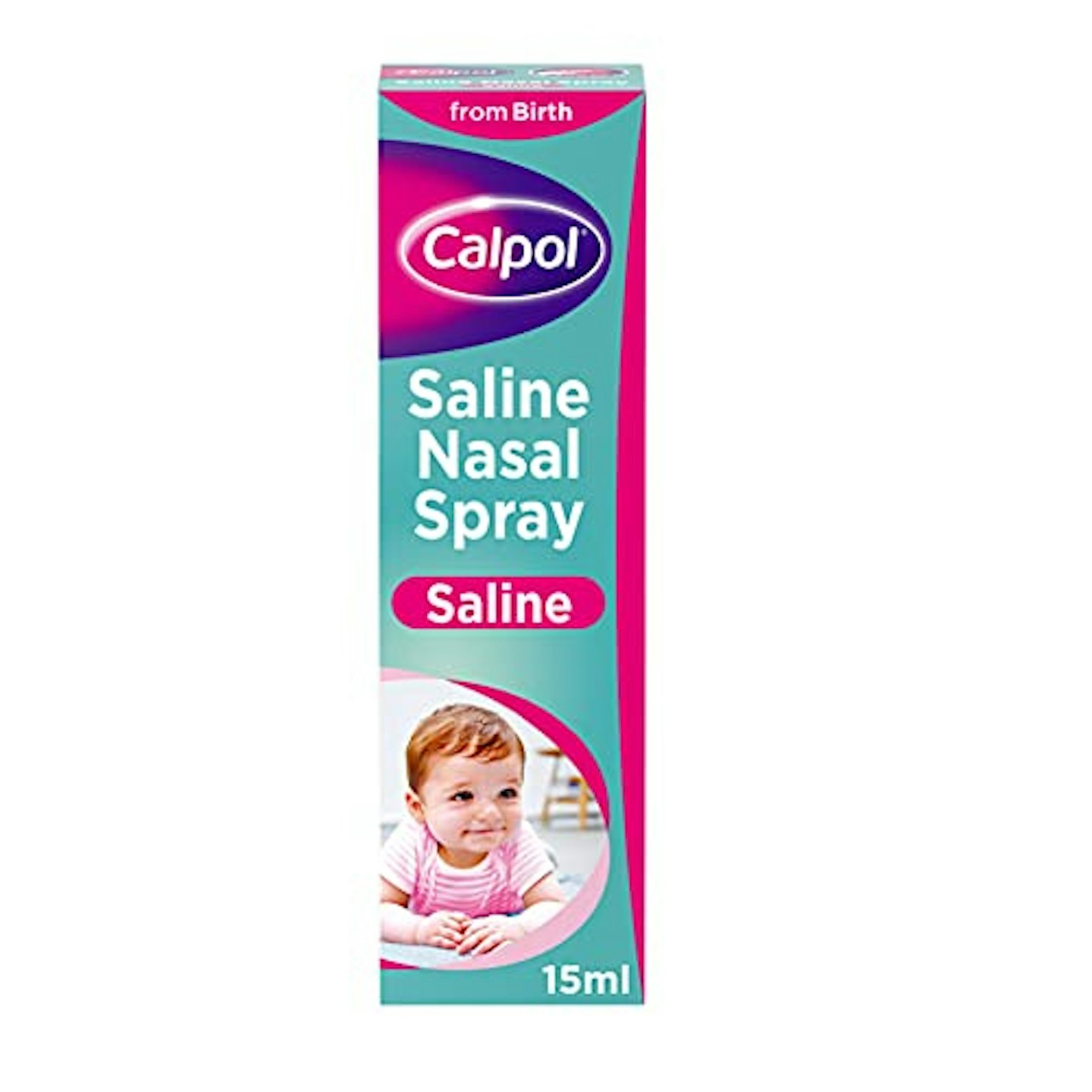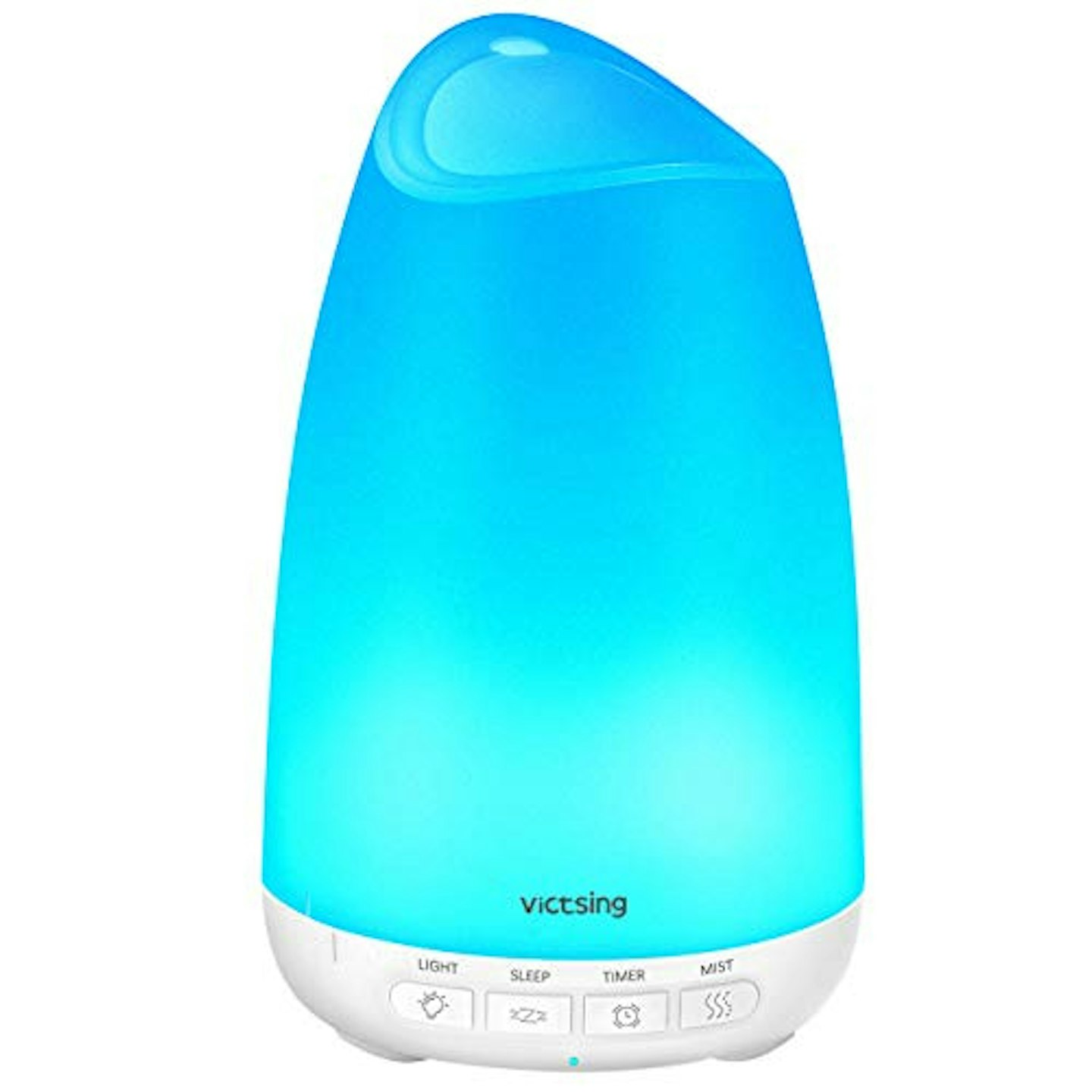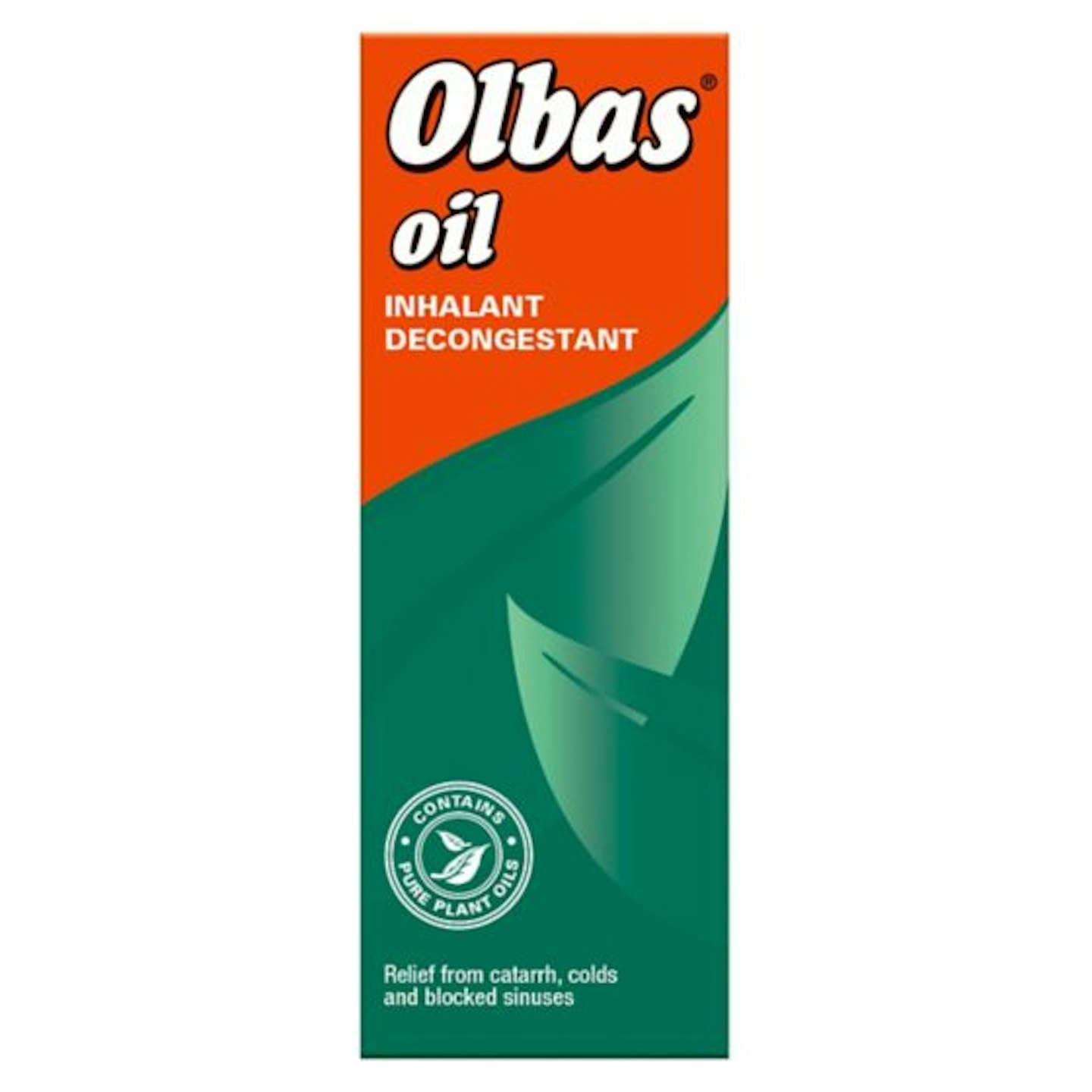We all know how uncomfortable a blocked nose can be and a stuffy nose can be very unpleasant for your baby, adversely affecting their feeding and disrupting their sleep. But do you know how to blow a baby’s nose?
Although it can be worrying, common coldsare very normal in young children as well as other illnesses, such as chickenpox and ear infections, as their immune systems are still developing. But according to the NHS, children will get colds far more frequently than adults, and symptoms include a blocked or runny nose, sneezing or a high temperature.
While Calpol or other appropriate remedies for babies can be bought from your local chemist, there are things you can do at home to help with your little one’s stuffy nose congestion. Here, we look at how to blow a baby’s nose, as well as the products that can give you a helping hand.
How to blow a baby’s nose
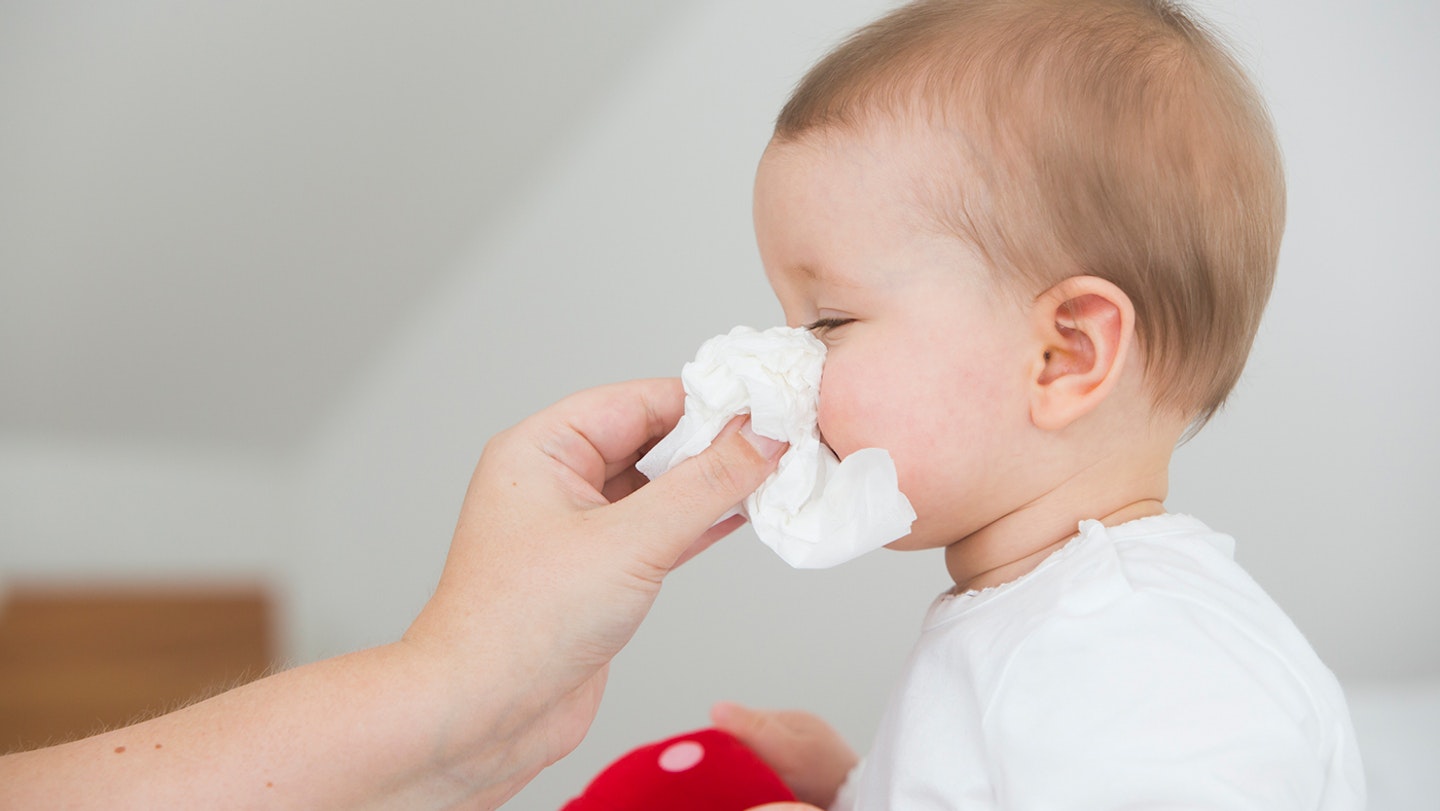
As your baby won’t be able to clear their nose themselves, they’re going to need your help. Below are four simple steps to help you blow your baby’s nose:
Step 1 — thin the mucus: this will help it move through your baby’s nose more easily. Keeping your baby hydrated will help with this or lie your baby onto their back and add a drop of saline into each nostril.
Step 2 — extract the mucus: you’ll want a bulb syringe for this (don’t worry we’ve pop one further down in this article). They’re also known as a ‘nasal aspirator’. To use it, squeeze the bulb and gently insert it into your baby’s nostril. Release the bulb. Air will be released, sucking up your baby’s mucus. Once you’ve done one nostril, repeat on the other.
Step 3 — wipe their nose: just make sure you wipe up any last visible bits of mucus around your baby’s nose using a soft facial tissue.
Step 4 — if step 2 didn’t work, then try sitting in a steamy bathroom with your baby for a few minutes. This will help to soften up the mucus in their nostrils. Then try using the nasal aspirator on them again.
If your baby has a runny nose then just make sure to wipe up the mucus frequently with some gentle baby wipes. We recommend the Aldi Mamia Extra Sensitive Baby Wipes. This will stop the mucus from becoming crusty and making your baby's nose sore.
How can I help my baby sleep better at night when they have a blocked nose?
As you know, when you've got a cold, things can seem much worse when lying down, and this is the same for your baby.
It's not as simple as telling them to blow their nose, and as we know, the safest position for babies is to sleep flat on their back to avoid SIDS, so all we can do as parents is help keep their nose clear until they feel better.
For more advice on baby sleep safety, visit The Lullaby Trust website here.
When to visit your GP
Although colds aren't normally serious, you should visit your GP if you notice any of the following:
• The cold has not cleared up within three weeks
• Your child is under three months old and has a temperature of 38 degrees, or 39 degrees if they are between 3-6 months
• Your child is struggling to breathe
• They are coughing up blood
• They have a persistent sore throat
• They seem to be getting worse rather than better
Home remedies to buy for your baby's blocked nose
Description
This is a 100 per cent natural solution for blocked noses made from sea water, containing healing sea minerals. Simply tip your baby’s head to the side (not backwards), insert the nozzle into a nostril, and spray once or twice. Suitable from 3 months.
Tested by Kim Robertson-Hunt, mum to Teddie and Henry; she says: “Sterimar was recommended to me by the nurses in hospital when my youngest was admitted with bronchiolitis. They use it all the time on little noses as the quickest and safest way to clear the blockage and make it easier for little ones to breathe.”
Sterimar was recommended by several mums in our Mumtribe Facebook group too.
Description
I’m sure we’re all familiar with this little pot of vapour rub from our own childhoods, but do note that it’s only suitable from the age of two years. This balm containing eucalyptus oil aims to help with congestion and colds – an old wives’ tale says to apply this to the soles of feet if you have a cough.
Tested by Sophie Knight, mum to Eli (3); she says: “We all know and love Vicks and it’s no surprise it’s a best-seller. The warming reaction on your chest makes you feel instantly a bit clearer in the nostrils. When Eli was born I didn’t realise it wasn’t suitable for babies, but luckily read the label properly, so please pay attention to the age restrictions.”
Description
Plug this into a mains socket and for up to eight hours your baby’s room will fill with the scent of lavender and chamomile. Slot in a refill pad (be careful and wash your hands) each night, and it’ll help your little one sleep easier. It’s also a nightlight that you can use without the refill pads as just a light.
Tested by Sophie Knight, mum to Eli (3); she says: “I swear by this when Eli has a heavy head cold. The scent fills the room and is really heady; I thought it would be too overpowering for him but he has a must more restful sleep when this is plugged in. It’s great that it’s a nightlight too.”
Description
The things we do for our children… This nasal aspirator is also knows as the Snot Sucker, helping to physically clear your baby’s blocked nose of mucus. It has a special filter meaning you won’t suck back anything, thankfully. Put the nozzle at the entrance to baby’s nostril – it doesn’t have to go inside – then suck gentle on the mouthpiece. It’s suitable for use from birth, and there’s also a handy video online showing you how to use it.
Description
New from Colief, Breathe Easy is a natural solution for blocked noses, containing eucalyptus and menthol. This vapour rub stick is easy to apply; it comes in a tube applicator so you just apply directly to your little one’s chest or back (the best way to describe it is like a Pritt Stick). It’s suitable from three months.
Tested by Sophie Knight, mum to Eli (3); she says: “This is a great innovation as it removes all the mess and fuss of a normal pot of balm. Eli likes to apply this himself, as it’s a fun game to rub the tube over his chest himself. The scent is ideal for blocked noses but not overwhelming for little ones.”
Description
Saline drops or spray are great for unblocking little noses. Suitable for use from birth, this is a saline solution that you spray up into your baby’s nose to help clear congestion, effectively washing away any mucus. Lay your baby down and turn their head to the side, insert the nozzle into a nostril and spray.
Tested by Sophie Knight, mum to Eli (3); she says: “This isn’t the easiest option, as it’s pretty uncomfortable for babies and toddlers – Eli recognises the spray and refuses these days. However, it does help to physically clear snot from the nose.”
7.
VicTsing Aromatherapy Diffuser
Description
A different approach is to have an aromatherapy diffuser in your little one’s bedroom, and use an essential oil such as eucalyptus oil.
Diffusers work by vibrating the water into a mist, so they’re not the same as a humidifier, but will fill the room with the scent of your chosen essential oil.
Tested by Sophie Knight, mum to Eli (3); she says: “The minute Eli shows a hint of a cold or sniffle, I pop some eucalyptus oil into a diffuser in his room when he goes to bed. It’s subtle and not overpowering, and I do think it helps him breathe easier in his sleep. I have one in my room now too, for the winter months.”
8.
Olbas Oil
Description
Olbas Oil gives light relief from congestion, colds, and blocked sinuses. Place a couple of drops on a hanky or muslin, but be sure to place away from where baby can get the oil onto their fingers or in their eyes. Suitable from 3 months.
Tested by mum Chelsea Abbott, from our Mumtribe Facebook group; she says: “I use Olbas Oil on bedsheets, in a humidifier and Olbas rub on a bib too. Only gives light relief though.”
